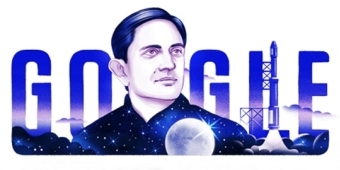As the Akshay Kumar-starrer Mission Mangal (about ISRO’s Mars Orbiter Mission) makes a run at the theatres and Google honours Vikram Sarabhai’s 100th birthday with a special doodle, The CSR Journal reacquaints you with the one-of-a-kind Indian scientist.
Fondly called the Father of the Indian Space programme, Vikram Sarabhai was way ahead of his times. From a young age, Sarabhai is known to have a deep interest in science and mathematics. After completing his primary education from India, he moved abroad for further studies. He became obsessed with science and all that science has to offer over his course of stay in England. By the time he was back to India, he was fixated on contributing something of relevance to the country.
He began researching on cosmic rays at the Indian Institute of Science, Bangalore, and such was his dedication that he published his first scientific paper within two years of starting his research! He once again went to England and returned when India had become independent. Realising the need for quality research institutions in the newly independent country, he helped to establish the Physical Research Laboratory (PRL) in Ahmedabad. K.R. Ramanathan, an atmospheric scientist was the founder director of PRL and under his able guidance, the institution went on to become a leading research organization dedicated to cosmic rays and space sciences.


